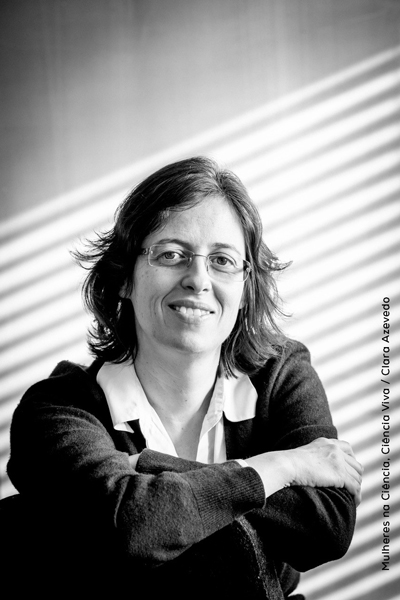Mariana Pinho receives ERC Advanced Grant
ITQB NOVA Researcher Mariana Gomes Pinho has won an ERC Advanced Grant. The 3M€ funding will be invested in one of the most significant health problems of our time: Antibiotic resistance. This is the third time the researcher has been selected by the Council, ensuring continuous funding since 2013, in a total of 7M€ distributed by three grants, highlighting the importance of this critical global challenge.
Multidrug-resistant bacteria are expected to claim over 300 million lives over the next 35 years. One of the leading causes of this mortality is Staphylococcus aureus, a pathogenic bacterium highly resistant to antibiotics studied by Mariana Pinho's group at ITQB NOVA. For a bacterial cell to grow and divide, a complex series of events, such as DNA replication or construction of the cell wall, must occur in a coordinated and orderly manner. Pinho´s research aims to uncover unknown links between these key events in the cell cycle, enabling the identification of vulnerable points where antibiotics can be more effective.
 "Despite our knowledge about the individual events in the cell cycle, we know very little about how they are coordinated. This coordination is essential for the survival of bacterial cells and, therefore, their ability to cause infections. Our aim with this project is to find the missing links between major cell cycle events, while also developing tools and assays useful for antibiotic discovery”, says Pinho.
"Despite our knowledge about the individual events in the cell cycle, we know very little about how they are coordinated. This coordination is essential for the survival of bacterial cells and, therefore, their ability to cause infections. Our aim with this project is to find the missing links between major cell cycle events, while also developing tools and assays useful for antibiotic discovery”, says Pinho.
This work complements the work developed in the two previous grants. In 2012 (Starting) and 2017 (Consolidator), the focus was on the intracellular organization of Staphylococcus aureus and its cell cycle, with the objective of better understanding how bacterial cells grow and divide, but also of using this knowledge to elucidate the mechanisms of action of various antimicrobial compounds. "With this third grant, we want to go further. To think innovatively about new antibiotics, we need to know more about each cellular process, and also to understand how these processes are interconnected, to attack bacteria simultaneously at several critical targets. The funding from this ERC grant will allow us to buy state-of-the-art equipment to study the division machinery of bacteria with exceptional spatial and temporal resolution", adds the researcher.
The impact of the grant is also recognized by ITQB NOVA. “Mariana Pinho is one of the very few researchers to be continuously funded by the ERC for 15 years in a row”, says ITQB NOVA Dean Cláudio M. Soares. “We are very proud to have her as a lab head at ITQB NOVA, doing top-notch research, teaching our students and breaking new ground every day.”
In 2023, the ERC Advanced Grant has been attributed to 218 researchers, in a total of 544M€. In Portugal, three other researchers have received the grant: Isabel Gordo (IGC), Maria Mota (iMM) and Henrique Veiga-Fernandes (Champalimaud Foundation). The four researchers are working in Life Sciences in the Lisbon area, and part of COLife – the Lisbon and Oeiras Collaboration in Life Sciences. Isabel Gordo and Mariana Pinho are also members of the LS4Future Associate Laboratory, the biggest Associate Laboratory in Life Sciences in Portugal, funded by FCT.

About Mariana Pinho
Mariana Gomes de Pinho has a degree in Applied Chemistry from the NOVA School of Science and Technology (FCT NOVA). She began her research career studying mechanisms of antibiotic resistance in Hermínia de Lencastre's Laboratory, in ITQB NOVA. In 1997, she moved to Rockefeller University, New York, where she did her PhD work in the Laboratory of Alexander Tomasz. In 2001, she joined Jeff Errington's Laboratory at Oxford University, UK, to study the intracellular organisation of bacteria. She returned to Portugal and, in 2006, started her own research group, the Bacterial Cell Biology Laboratory, at ITQB NOVA. She is a member of the European Academy of Microbiology (EAM), the European Molecular Biology Organization (EMBO) and the Academia Europaea. Mariana Pinho has won three consecutive ERC grants: Starting (2012), Consolidator (2017) and Advanced (2023). She is also a proud mother of three daughters. The project logo was designed by her daughter Beatriz, an art student in the Netherlands.







